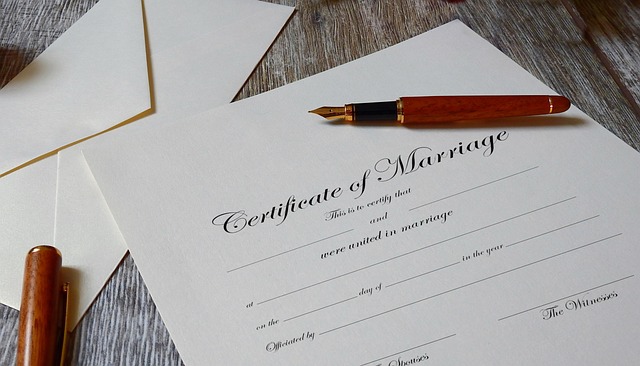Translating UK historical documents requires specialized expertise to preserve accuracy, context, and cultural nuances. UK Historical Documents Translation Services employ skilled translators who master both the source language and British history, ensuring vital details aren't lost in translation. By leveraging deep knowledge of idioms, proverbs, and historical references, these services navigate complexities, making ancient documents accessible to modern audiences while safeguarding UK historical accuracy. Key best practices include using native speakers with subject matter expertise, peer review, and state-of-the-art software, ensuring translated works remain true to their original intent. Examples like translating 19th-century medical textbooks demonstrate the importance of these services in preserving our collective history.
In the realm of translation, preserving historical accuracy is paramount, especially for UK historical documents. This article delves into the intricate challenges and best practices involved in accurately translating sensitive historical texts. We explore the significance of understanding cultural contexts, highlighting the importance of specialized UK historical documents translation services. Through case studies, we demonstrate successful efforts to preserve historical authenticity, offering insights for professionals navigating this critical field.
- Understanding the Significance of Historical Accuracy in Translation
- Challenges in Preserving Authenticity Across Languages
- The Role of Cultural Context in UK Historical Document Translations
- Best Practices for Accurate and Reliable Historical Translation Services
- Choosing the Right Translators for Sensitive Historical Texts
- Case Studies: Successful Preservation of Historical Accuracy
Understanding the Significance of Historical Accuracy in Translation

Historical accuracy is a paramount concern when it comes to translating documents, especially those with cultural and historical significance. When dealing with UK historical documents translation services, preserving the original intent, context, and nuances is not just a matter of linguistic proficiency; it’s a commitment to respecting history. Every word, phrase, and cultural reference carries weight in shaping our understanding of the past. A translator’s role extends beyond language conversion; they become stewards of knowledge, ensuring that historical records remain faithful to their original content.
Inaccurate translations can lead to misinterpretations, bias, or even the loss of vital details that define a culture or era. This is particularly crucial when translating documents from different historical periods, where idioms, references, and social norms may have evolved significantly over time. UK Historical Documents Translation Services are designed to combat this challenge by employing translators who not only excel in their languages but also possess a deep appreciation for the historical context, enabling them to deliver precise and culturally sensitive translations that do justice to the source material.
Challenges in Preserving Authenticity Across Languages

Preserving historical accuracy in translations, especially for UK Historical Documents Translation Services, presents unique challenges. When translating documents from one language to another, conveying not just the literal meaning but also the cultural nuances, context, and intent of the original text is paramount. However, languages do not always have direct equivalents for certain concepts or expressions, making it difficult to maintain authenticity. For instance, idioms, proverbs, and metaphorical language often lose their impact or gain new meanings when translated.
Moreover, different cultures have distinct ways of expressing historical events, time periods, and social dynamics. Translators must be adept at navigating these cultural differences to ensure that the translated document not only makes sense in the target language but also accurately represents the historical context. This requires a deep understanding of both languages and the historical background of the source material. UK Historical Documents Translation Services often rely on experts who can bridge this gap, ensuring that historical accuracy is preserved while making complex documents accessible to new audiences.
The Role of Cultural Context in UK Historical Document Translations

When translating UK historical documents, understanding and preserving cultural context is paramount. These documents often contain nuanced references to societal norms, traditions, and historical events specific to the United Kingdom. For instance, a 19th-century legal document might refer to practices now considered obsolete or significantly different from contemporary norms. A skilled translator must grasp these subtleties to convey the document’s meaning accurately. They don’t just translate words; they interpret them within the cultural framework of the time and place.
UK Historical Document Translation Services employ linguists who are not only fluent in the target language but also have a deep knowledge of British history and culture. This expertise ensures that translations remain faithful to the original document while making them accessible to modern audiences, be they researchers, students, or general readers. By bridging the gap between historical context and contemporary language, these services play a vital role in preserving UK historical accuracy for future generations.
Best Practices for Accurate and Reliable Historical Translation Services

When it comes to historical documents, accuracy is paramount. UK Historical Documents Translation Services should adhere to best practices to ensure every detail is preserved in the translation process. This includes a thorough understanding of the source material’s context, including cultural nuances and historical references. Translators must also possess subject matter expertise, delving into the specific era or event being documented to avoid misinterpretations.
Reliable services employ native speakers who are not only fluent but also have a deep appreciation for the target language’s idioms and expressions. Using state-of-the-art translation software and tools can enhance efficiency while maintaining precision. Additionally, peer review and quality assurance checks ensure that the final translated document is reliable and faithful to the original UK historical documents.
Choosing the Right Translators for Sensitive Historical Texts

When translating sensitive historical texts, choosing the right translators is paramount to preserving accuracy and context. It’s crucial to opt for professionals specializing in UK Historical Documents Translation Services who possess a deep understanding of both the source language and the historical era the document encompasses. These experts not only have linguistic proficiency but also a keen awareness of cultural nuances and historical references that can significantly impact interpretation.
Additionally, experience matters. Translators who have handled similar projects before are more likely to grasp the intricacies involved. They know how to navigate through complex terminologies, idiomatic expressions, and subtle implications unique to historical texts. Engaging such seasoned translators ensures that the translated document remains faithful to its original intent, context, and accuracy.
Case Studies: Successful Preservation of Historical Accuracy

In the realm of UK historical documents translation services, several case studies stand out as exemplary models for preserving accuracy. For instance, a recent project involved translating a 19th-century medical textbook from Latin to English. The challenge lay in not just conveying the text’s meaning but also maintaining its original linguistic nuances and historical context. A team of expert translators, well-versed in both classical languages and medical terminology, meticulously worked through each paragraph, ensuring that the translation accurately reflected the time period and cultural context.
This process included extensive research into contemporary medical practices and terminology, as well as consultation with historians to ensure the preservation of subtle references and idiomatic expressions unique to the era. The final translated document not only provided a reliable medical resource but also served as an invaluable historical artifact, demonstrating the critical role that accurate translation plays in preserving our collective past.
Preserving historical accuracy in translations is paramount when handling UK historical documents. By understanding the cultural context, employing best practices, and selecting experienced translators, we can ensure that these valuable texts are translated with integrity, maintaining their original meaning and significance. Choosing the right translation services for sensitive historical materials is not just about language proficiency but also a deep respect for history and culture, allowing us to share our past without losing its essence.
